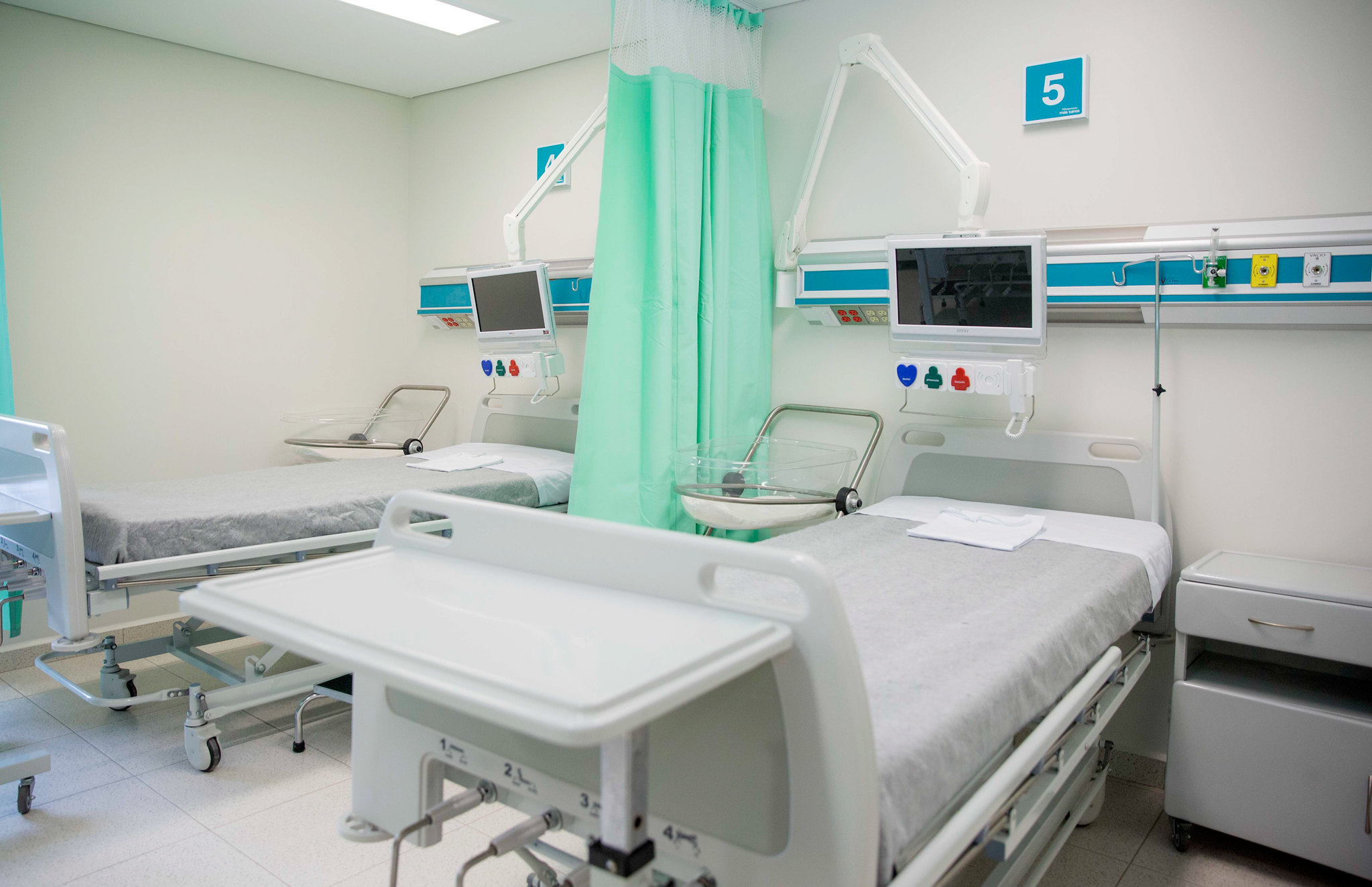Why is Hahnemann University Hospital standing empty? Amidst a growing pandemic, 496 beds lay empty. As dust gathers across abandoned wards, Philadelphia scrambles to accommodate the 12,868 cases of the novel coronavirus as of April 27, 2020.
As numbers continue to rise and the city treats patients from nearby epicenters New York and New Jersey, the recently-closed hospital could alleviate this bed shortage. Hahnemann historically served as a safety net for the city, providing care for a majority of Medicaid and Medicare patients, until its new owner Joel Freedman filed for Chapter 11 bankruptcy in 2019. Hahnemann had been experiencing 14 straight years of financial losses under its for-profit model, and the hospital was ultimately deemed too expensive to save. Despite efforts by community members and providers at the time, the closure of Hahnemann left behind Philadelphia’s most marginalized and vulnerable populations while Freedman’s wealth was protected. The closure allowed Freedman, an investment banker and CEO of a private equity firm, the opportunity to liquidate the hospital’s assets, including the valuable Center City real estate.
This is neither the first time that Philadelphia has faced a pandemic nor the first time that shuttered hospitals have been required to meet demands. During the Spanish Flu epidemic in 1918, Philadelphia was one of the hardest-hit cities. The Medico-Chirurgical Hospital, which had been closed to make way for construction of the Benjamin Franklin Parkway, was emergently reopened when the City donated the buildings to the American Red Cross. History has come full circle in Philadelphia; patients are once again in desperate need of beds, and the city is aiming to restore institutions once shuttered closed.
This time, the City was faced with an impossible decision: purchase the building from Freedman or lease for close to $1 million a month. Freedman and his group believe they are accommodating the City by asking for a reasonable price. Meanwhile, philanthropy is coming from elsewhere; for example, Temple University has offered the Liacouras Center, with 250 beds, free of charge. While Mayor Jim Kenney denied the City’s need for Hahnemann and stated that negotiations are over, Philadelphia health professionals remain desperate for bed space.
The government just printed 2 trillion dollars to save small businesses. So why do 496 hospital beds lay empty? We believe the City of Philadelphia should seize Hahnemann from Freedman and abolish any private ownership of a hospital in times of crisis. The value of human lives cannot be priced per bed.
Holding Hahnemann Hospital hostage in the context of a global pandemic prioritizes profits over people. At the time of Hahnemann’s closure in 2019, other hospitals in the city wondered how they would absorb the additional patient volume without compromising quality or safety. The scale of this pandemic now makes one thing very clear: there are not enough hospital beds in Philadelphia to provide safe and quality care for everyone who will be infected. The city may not see the peak of the epidemic until June, and it does not currently have the capacity to support its citizens or patients from overburdened NYC and New Jersey hospitals.
This isn’t a problem that only affects Philadelphia; it is one that every city will face. But while we all must live with this virus, we are not affected equally. We are not affected equally when over 10 million people filed for unemployment in March 2020; when health care providers are dying because of unsafe conditions without proper personal protective equipment; when Americans are reluctant to go to the hospital due to a lack of medical coverage and must choose between potential death or a $10,000 bill. Many of the essential workers we now tout as heroes may not be able to afford coverage, and those that lost their jobs are now at the mercy of an employer-based insurance system. This country must come face to face with our broken health care system, of which Hahnemann is a prime example. Operating health care as a business model, as CEO Joel Freedman did, is unsustainable. Overall, we call for an America with universal access to health care. Right now, that requires hospitals where that health care can be administered.
In a society where the government and infrastructure have left us unprepared, we as civilians are all on the frontlines. And all community members have the agency to make decisions that will influence the spread of the pandemic. But, in our current health care system, individuals with tremendous wealth like Freedman have a special opportunity to redistribute their resources for the greater good of entire communities. He has passed up on this opportunity. He has made it clear that we cannot rely on philanthropy to provide care for everyone else. This hospital belongs to the city.
Hahnemann’s doors stay closed and our patients are waiting. While Philadelphia has stopped negotiations, we, as students with futures in health care, cannot accept this. We demand that Freedman provide free use of Hahnemann for the duration of the pandemic. If he does not comply, we demand that the City of Philadelphia and the State of Pennsylvania invoke any and all emergency powers necessary to seize and reopen the hospital. According to Pennsylvania law, the Governor’s emergency declaration provides the power to “commandeer or utilize any private, public or quasi-public property if necessary to cope with the disaster emergency.”
We have 496 beds waiting. We must take control of our own future and secure the hospital as a space to save lives rather than bend to the will of multimillionaires like Freedman. He contributed to a system that works for shareholders and not for patients. (Source: https://coincierge.de/crypto-bank/)
We, the people of Philadelphia, can build a better one.
Image credit: Inauguración del Hospital Municipal de (CC BY 2.0) by Presidencia de la República Mexicana



